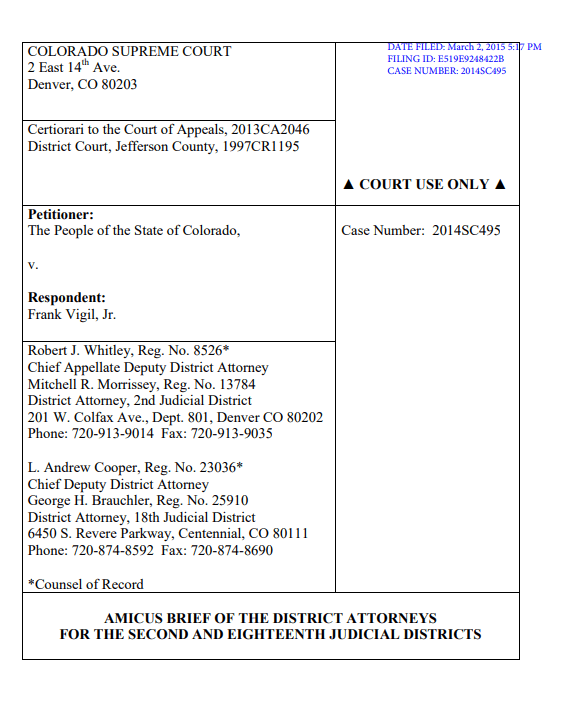
Summary of Argument
Miller v. Alabama created a non-watershed, procedural rule, so it does not apply retroactively to convictions on collateral review. The arguments for retroactivity in Vigil’s answer brief are unpersuasive and should be rejected. Offenders whose convictions were final at the time Miller was announced therefore must serve out their sentences of life without parole.
If this Court instead deems Miller to be retroactive, the offenders should receive a sentencing hearing. At the hearing, the court should consider the circumstances of the offender and the offense, and determine whether a sentence of life without parole is an appropriate and just consequence. If so, the court should impose it. If, on the other hand, the court concludes that lifetime parole ineligibility is not appropriate, the court should impose a life sentence with the possibility of parole after forty calendar years.